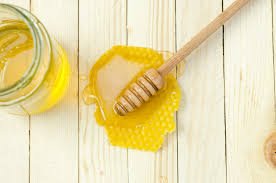In recent years, the world has been grappling with the urgent need to develop sustainable agricultural practices that can help mitigate the effects of climate change. One crop that has garnered significant attention for its potential to revolutionise sustainable agriculture is hemp. Hemp is a versatile plant that can be used to produce a wide range of products, from textiles and building materials to food and medicinal products, such as cannabis infused honey and canna sugar. In this article, we will explore the environmental impact of hemp farming and why it is the future of sustainable agriculture.
What is Hemp?
Hemp is a variety of the Cannabis sativa plant species that is grown specifically for industrial purposes. Unlike its close cousin, marijuana, hemp contains very low levels of THC (tetrahydrocannabinol), the psychoactive compound that produces the “”high”” associated with marijuana use. Hemp has been cultivated for thousands of years for its strong fibres, nutritious seeds, and medicinal properties.
The History of Hemp Cultivation
The cultivation of hemp dates back to ancient times, with evidence of its use found in China as early as 10,000 BCE. Throughout history, hemp has been used to make a variety of products, including paper, textiles, and rope. In fact, the Declaration of Independence was drafted on hemp paper. However, in the early 20th century, hemp cultivation became synonymous with marijuana, leading to its prohibition in many countries, including the United States.
The Legalisation of Hemp in the United States
In 2018, the United States Congress passed the Farm Bill, which legalised the cultivation of hemp at the federal level. This landmark legislation has opened up new opportunities for farmers and businesses to explore the potential of hemp as a sustainable and profitable crop. Home-Grown Cannabis Plants
The Environmental Benefits of Hemp Farming
Hemp farming offers numerous environmental benefits that make it a promising alternative to traditional agricultural practices. Let’s explore some of the ways in which hemp can help reduce the environmental impact of agriculture.
Hemp as a Carbon Sink
One of the most significant environmental benefits of hemp farming is its ability to act as a carbon sink. Hemp is a fast-growing plant that can absorb large amounts of carbon dioxide from the atmosphere during its growth cycle. In fact, one hectare of hemp can absorb up to 15 tonnes of CO2 per year, making it one of the most effective crops for carbon sequestration.
Hemp’s Ability to Improve Soil Health
Hemp is also known for its ability to improve soil health. The deep root system of the hemp plant helps to aerate the soil and prevent erosion, while the fallen leaves and other plant matter contribute to the development of healthy, nutrient-rich soil. Additionally, hemp is naturally resistant to many pests and diseases, reducing the need for harmful pesticides and herbicides.
Hemp’s Low Water Requirements
Another environmental benefit of hemp farming is its low water requirements. Compared to other crops, such as cotton, hemp requires significantly less water to grow. This is particularly important in regions where water scarcity is a growing concern.
Hemp as a Renewable Energy Source
Hemp can also be used as a renewable energy source. The woody core of the hemp plant, known as the hurd, can be burned to produce heat and electricity. Additionally, hemp oil can be used as a biofuel, providing a sustainable alternative to fossil fuels.
The Versatility of Hemp
Hemp is an incredibly versatile plant that can be used to produce a wide range of products. Let’s explore some of the ways in which hemp is being used today.
Hemp Textiles
Hemp fibres are strong, durable, and naturally resistant to mould and mildew, making them an excellent choice for textiles. Hemp can be used to make clothing, shoes, bags, and other accessories, providing a sustainable alternative to synthetic materials.
Hemp Building Materials
Hemp can also be used to produce sustainable building materials, such as hempcrete, a concrete-like material made from hemp hurds and lime. Hempcrete is lightweight, fire-resistant, and has excellent insulation properties, making it an attractive choice for eco-friendly construction.
Hemp Food Products
Hemp seeds are highly nutritious, containing all nine essential amino acids and a healthy balance of omega-3 and omega-6 fatty acids. They can be eaten raw, sprouted, or used to make a variety of food products, such as hemp milk, hemp protein powder, and hemp oil.
Hemp-Derived CBD Products
Hemp is also a source of cannabidiol (CBD), a non-psychoactive compound that has been shown to have numerous health benefits. CBD can be extracted from hemp and used to produce a variety of products, such as oils, tinctures, and topical creams.
The Economic Potential of Hemp Farming
Hemp farming not only offers environmental benefits but also has significant economic potential. Let’s explore some of the ways in which hemp farming can benefit farmers and local economies.
New Opportunities for Farmers
The legalisation of hemp cultivation in the United States has opened up new opportunities for farmers looking to diversify their crops and increase their profits. Hemp can be grown on marginal land that may not be suitable for other crops, providing farmers with a new source of income.
Job Creation in Rural Communities
Hemp farming can also help to create jobs in rural communities. The processing and manufacturing of hemp products require skilled labour, providing employment opportunities in areas that may have limited job prospects.
Revitalising Local Economies
The growth of the hemp industry can also help to revitalise local economies. As hemp farming and processing facilities are established, they can attract new businesses and investment to the area, creating a ripple effect throughout the local economy.
The Future of Hemp Farming
As the world continues to grapple with the challenges of climate change and sustainable agriculture, hemp farming is poised to play an increasingly important role. Let’s explore some of the trends and innovations that are shaping the future of hemp farming.
Genetic Improvement of Hemp Cultivars
One area of research that is gaining attention is the genetic improvement of hemp cultivars. Scientists are working to develop hemp varieties that are better suited to specific growing conditions and end-use applications, such as high-yield cultivars for fibre production or high-CBD cultivars for medicinal use.
Advancements in Hemp Processing Technology
Another area of innovation is in the development of new hemp processing technologies. From mechanical harvesting equipment to advanced extraction methods for CBD oil, new technologies are helping to streamline the production process and increase efficiency.
New Product Development
As the hemp industry continues to grow, we can expect to see the development of new and innovative products. From hemp-based plastics to medicinal products like cannabis-infused honey and canna sugar, the possibilities are endless.
The Role of Government Policy
While the legalisation of hemp cultivation in the United States has been a significant step forward, there is still much work to be done to support the growth of the hemp industry. Government policies can play a critical role in promoting the adoption of hemp farming and supporting the development of new markets for hemp products.
Incentives for Hemp Farmers
One way that governments can support hemp farmers is by providing incentives, such as tax breaks or subsidies, to encourage the adoption of hemp farming. These incentives can help to offset the upfront costs of establishing a hemp farm and provide a safety net for farmers during the early stages of production.
Investment in Research and Development
Governments can also support the growth of the hemp industry by investing in research and development. This can include funding for scientific research into the agronomy and genetics of hemp, as well as the development of new processing technologies and product applications.
Education and Outreach
Finally, governments can play a role in educating the public about the benefits of hemp farming and the potential of hemp as a sustainable and versatile crop. This can include outreach programs to farmers, as well as public education campaigns to raise awareness about the environmental and economic benefits of hemp.
Conclusion
Hemp farming offers a promising solution to the challenges of sustainable agriculture in the 21st century. With its ability to act as a carbon sink, improve soil health, and provide a sustainable source of renewable energy, hemp has the potential to revolutionise the way we think about agriculture. Additionally, the versatility of hemp as a raw material for a wide range of products, from textiles to medicinal products like cannabis-infused honey and canna sugar, highlights the economic potential of this remarkable plant.
As the world continues to grapple with the urgent need to develop sustainable agricultural practices, hemp farming is poised to play an increasingly important role. By investing in research and development, providing incentives for farmers, and educating the public about the benefits of hemp, we can help to unleash the full potential of this versatile and sustainable crop. The future of sustainable agriculture is green, and it is hemp.
Brit is a passionate writer with a love for storytelling and exploring the depth of human experience through words. With a keen eye for detail and a thoughtful voice, Brit crafts pieces that resonate with readers and spark meaningful reflection. When not writing, Brit enjoys quiet moments with a good book, long walks, and finding inspiration in everyday life.






